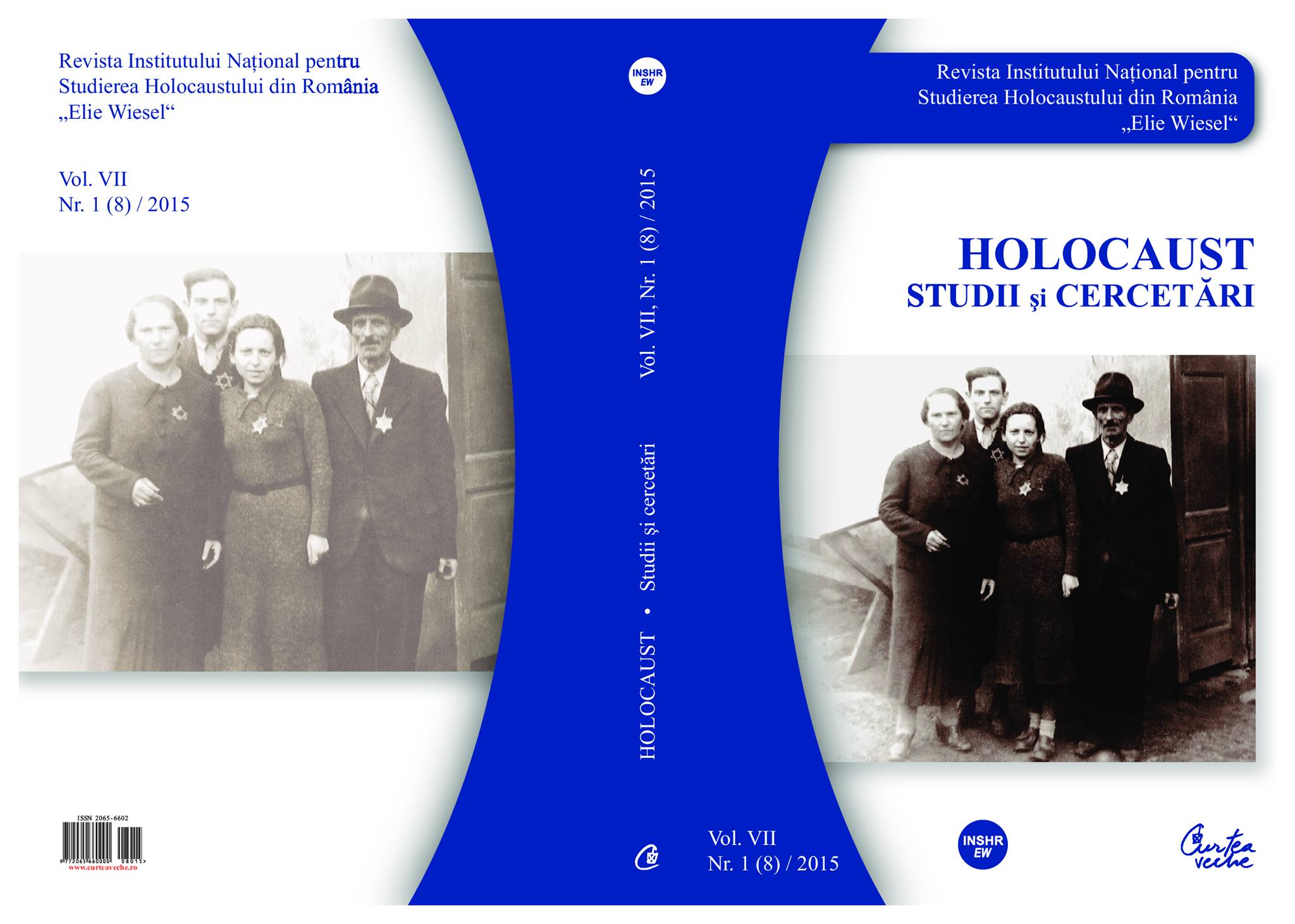The Local Administration in Transnistria and the Holocaust: Two Case Studies
The Local Administration in Transnistria and the Holocaust: Two Case Studies
Author(s): Svetlana SuveicaSubject(s): History
Published by: Institutul National pentru Studierea Holocaustului din Romania ELIE WIESEL
Keywords: Transnistria; Holocaust; local administration; professional conduct; personal conflicts; Jewish women
Summary/Abstract: The paper deals with an under-researched topic: the behavior of the local civil administration in Transnistria in the Holocaust, during the Romanian military occupation, from 1941 to 1944. Although not directly responsible for “cleansing the terrain”1 of Jews, the institutions of the local administration, subordinated to the Civil Governorate of Transnistria, were expected to express loyalty and cooperated with central as well as regional civil and military authori ties. The primary sources show cases of a conflictual cooperation between the local institut ions themselves, which were often shaped by personal conflicts between the public servants. These conflicts subsequently influenced the decisions related to the Jews. The moral and professional conduct of the public servants was often judged by the expected behavior related to the status of the Jews; the charges of having intimate relationships with Jewish women added significantly to the vulnerability of the public servants, on the one hand. On the other hand, the documents reveal the vulnerability and fragility of the life of Jewish women, who were exposed to continuous moral and physical humiliation, being often turned by public servants into tools for sexual pleasure and personal revenge.
Journal: Holocaust. Studii şi cercetări
- Issue Year: VII/2015
- Issue No: 08
- Page Range: 97-109
- Page Count: 13
- Language: English
- Content File-PDF

